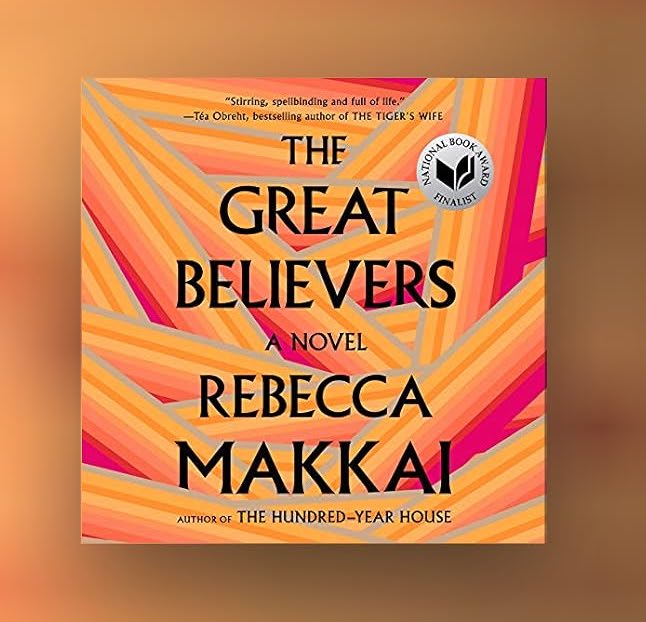
The Great Believers is a beautiful, gentle, heart-wrenching novel about a group of friends decimated by the AIDS epidemic in the 1980s. The story is told from two perspectives and timeframes. The Chicago 1980s story focuses on Yale Tishman and his boyfriend Charlie, who’s the editor of Out Loud magazine. They have a tight-knit group of friends who are quickly dying from AIDS. They are realizing too late that some earlier cases of pneumonia were likely the virus. Condoms and safe sex are new conversations and not everyone is onboard. It’s all a mess—and eerily similar to the shame and blame game of the early COVID days. The second storyline is Paris 2015 and is told from the perspective of Fiona, or Saint Fiona as her grown daughter likes to moan. Fiona’s brother was one of the first in the 80s friend-group to die and Fiona ended up being power of attorney for many of his friends. Fiona is reconnecting with another member of the group in Paris and it’s clear that she’s carried the burden of burying those beautiful boys for decades.
Beautiful boys abound in this novel. Yale is working on acquiring a private collection of works done by artists in Paris just before and after World War II. The donor is Fiona’s grandmother and she specifically wants Yale to have the works for the gallery he manages. She sees the connection between Fiona and Yale losing their friends to the same loses she suffered during the war. Likewise, Fiona’s stay in Paris coincides with the 2015 terrorist attacks on nightclubs and other venues, again where young lives are cut short.
This is a novel about love and all its forms. There’s clearly the love among friends, in particular the familial love you feel for your chosen family vs. your biological family, especially in the case for most of these boys who are estranged from their parents. There’s romantic love, unrequited love, self-destructive love, and self-love.
There are a few Shakespeare references to Hamlet, in particular the role of Horatio as the deeply trusted friend and, after Hamlet’s death, the keeper and teller of Hamlet’s story (insert Fiona here). But given the themes of love, I can’t help but think of Romeo and Juliet. Fiona as the nurse. There’s a Roman and Julien, there’s thugs and street battles, beautiful parties and costumes, the tragedy of young lives sacrificed. Surly there’s a joke about dying on one’s sword to be made?
Like other fans of this book, I can’t heap enough praise on to it. I found it emotionally moving but not distressing. The reverberations of the 80s are felt from the first page through to the death metal bass drop of the Paris nightclub in 2015. Oh boy, this was a good book.